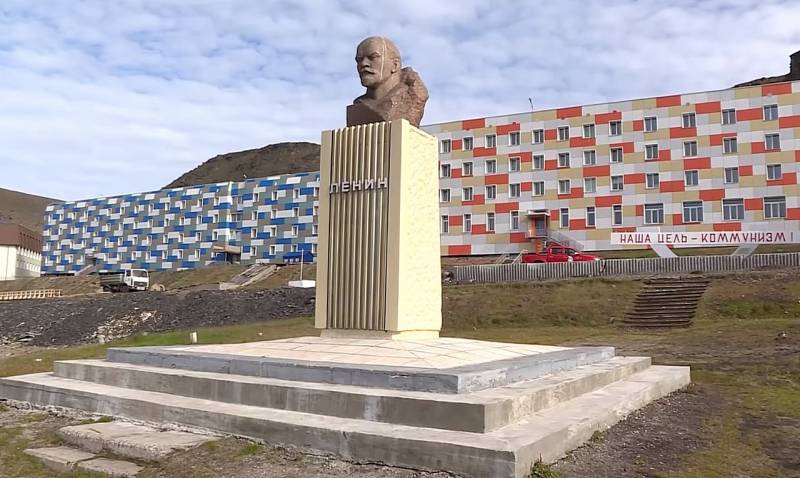The Svalbard Paradox: "Russian Villages Within NATO"
In 2022, Russian settlements located on Spitsbergen found themselves in an extremely unpleasant situation. The Artikugol company, which mines coal at the Barentsburg mine, was denied the transport of goods to the archipelago through the Norwegian mainland - the Storskog checkpoint on the Russian-Norwegian border. We will try to figure out how relations between the Russian Federation and Norway will develop in matters relating to the economic development of Svalbard.
The international legal status of the archipelago is largely determined by the Svalbard Treaty, which was signed in 1920. This document establishes the sovereignty of Norway over this territory, and the states parties to the agreement (it was signed by 39 countries, including Russia) were guaranteed an equal right to exploit the natural resources of Svalbard and its territorial waters.
In the thirties of the last century, settlements (Barentsburg, Piramida and Grumant) were actively created and developed on the archipelago by the forces of the Soviet side. This was done by the Soviet Union to demonstrate its presence in the region. In 1931, the Arktikugol trust was organized in the USSR. The specialization of the new enterprise is the extraction and sale of coal and other minerals in the archipelago to meet the needs of the Murmansk and Arkhangelsk regions and the structural units of the Northern Navy. It is worth noting that this step was purely political character, with economic from the point of view, the development of deposits in Svalbard even then looked unprofitable and unpromising. However, our country managed to resolve the issue related to the growth of administrative influence in the region. For a long time, until the collapse of the USSR, the Soviet population in the archipelago even exceeded the number of Norwegian citizens.
It must be understood that coal mining in Svalbard was carried out in extremely difficult mining, geological and climatic conditions, which negatively affected the profitability of production. During World War II, most of the infrastructure of Soviet settlements was destroyed by the military forces of Nazi Germany. In the post-war period, the restoration of destroyed facilities was carried out at an active pace, and already in the seventies, almost the entire social infrastructure was created, which still functions in the Russian settlements of the archipelago.
At the moment, the Russian side is engaged in coal mining in Spitsbergen by the FSUE GT Arktikugol. Raw materials go exclusively to support the energy life of Barentsburg. In addition, special attention is paid to research activities, the extraction of bioresources and the development of tourist routes. Also, from time to time there are reports in the media about the desire of various structures and companies to implement the most exotic projects on the territory of the archipelago. So, for example, it was about the construction of ophthalmological and balneological centers or the extraction and processing of algae for the production of bird food.
In the summer of 2022, the continued comfortable existence of Russian settlements on Svalbard was in question. Against the backdrop of changing geopolitical conditions, Norway (a NATO country since 1949) did not agree to make an exception for goods that were sent to Russian miners in the village of Barentsburg. The reason for this was the earlier sanctions. As a result, twenty tons of cargo, which were intended for our compatriots living in the archipelago, got stuck at the Russian-Norwegian checkpoint "Storskog". The most curious thing is that such a situation could have been avoided, but Russia does not have regular communication with Svalbard, although all the technical and geographical possibilities for this are available. Therefore, at the moment, the goods necessary for the life support of the inhabitants of the archipelago can be delivered by the only cargo ship Bring, which regularly goes to Svalbard from the Norwegian Tromso and sets off on its route every ten days.
Then the Consul General of the Russian Federation in the archipelago, Sergei Gushchin, commented to Izvestia that Russian settlements are currently being actively prepared for the winter season. There is an urgent need for various kinds of components, technical equipment, spare parts for the wind and heat station. Unfortunately, it all got stuck at the Storskog checkpoint.
By November 2022, the following situation had developed: in the ten months since February, the Norwegian side had allowed goods from Russia to Svalbard to pass through its mainland border four times. Such a decision in Norway was explained by the fact that Russian settlements on the archipelago are in a special position, and being locked up for the transportation of these goods can lead to critical consequences for their population. Therefore, in this case, an exception was made for goods that fall into the sanctions lists of the European Union, to which Norway had previously joined.
Summing up, it must be emphasized that despite the fact that the situation with the delivery of goods to Svalbard has partially stabilized, its aggravation can occur at any time. Currently, Norway and the Russian Federation are on strictly opposite political poles. In the current conditions, it is extremely important for Russia to make all processes related to the provision of domestic settlements as independent and independent as possible, especially since our country has all the opportunities for this. In addition, we must not forget that the functioning of Russian settlements on the archipelago is largely image-based. For the Russian Federation, as for the Arctic state, it is extremely important to take an active part in all projects beyond the Arctic Circle, since this region is in the sphere of Russia's national interests. The nineties of the last century had a very negative impact on the standard of living in the “Russian part” of Svalbard, so the Russian Federation needs to make every effort to preserve, and in the future to develop, the little that remains on the archipelago from Soviet times.

Information